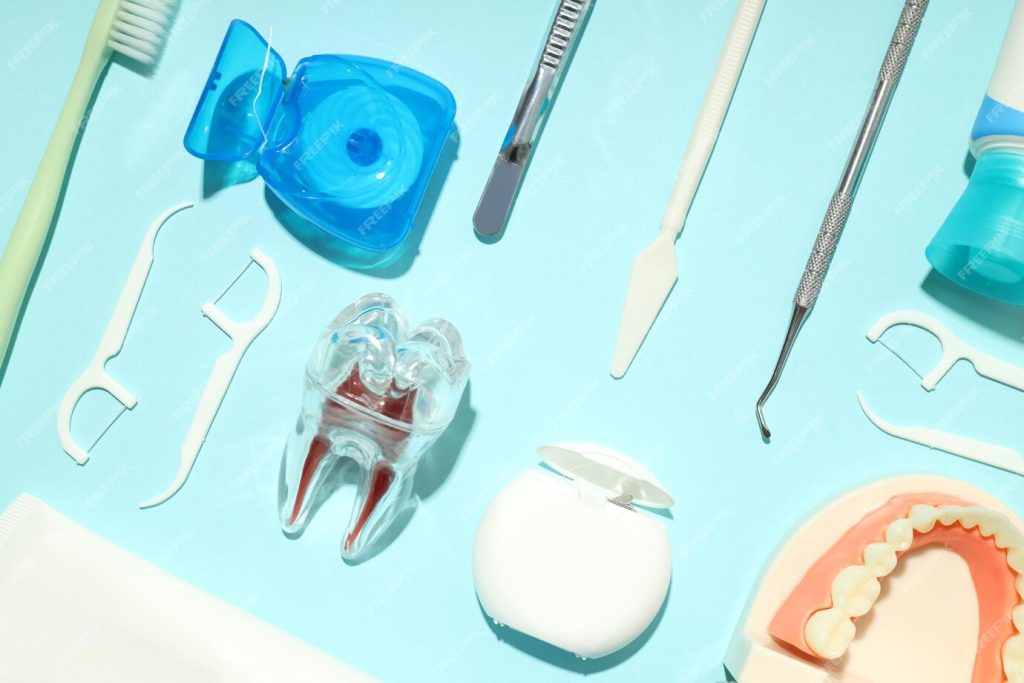Maintaining good oral health is much more than having a bright smile and high self-esteem; it plays a critical role in the overall well-being of your body. Research has shown that oral health is closely connected to several systemic diseases. Let’s explore this connection and see how oral health impacts your entire body.
Cardiovascular Diseases

Did you know that poor gum health can impact your heart? Gum inflammation and periodontal diseases can allow harmful bacteria and inflammatory substances to enter the bloodstream. These can contribute to the formation of fatty plaques in blood vessels, raising the risk of cardiovascular diseases like heart attacks and strokes. Keeping your gums healthy is an important step toward maintaining heart health! According to the American Dental Association, chronic oral inflammation and the presence of harmful bacteria in the bloodstream are thought to explain the association between oral health and heart disease. For more insights on modern dentistry innovations, check out The Future of Dentistry: Cutting-Edge Techniques and Innovations.
Diabetes

For individuals with diabetes, oral health presents particular challenges. High blood sugar levels can increase the risk of gum inflammation, tooth decay, and oral infections. On the other hand, periodontal diseases can make blood sugar control more difficult, creating a two-way relationship. Managing oral health is crucial for those with diabetes. Imagine being able to better control your blood sugar by simply brushing and flossing regularly! The FDI World Dental Federation highlights that poorly controlled diabetes worsens periodontal disease, and severe periodontitis can complicate diabetes management. To learn more about preventive strategies, visit How to Prevent Tooth Decay.
Respiratory Infections
Oral bacteria don’t just stay in your mouth; they can travel to your lungs and contribute to respiratory infections. Individuals with poor oral hygiene are at higher risk of conditions such as pneumonia and chronic bronchitis. Good oral care can help prevent these infections. Next time you brush, remember that you’re not just caring for your teeth, but also protecting your lungs! For more tips on relieving tooth pain, you can read Effective Strategies to Relieve Tooth Pain: A Comprehensive Guide.
Pregnancy Complications

Oral health can directly affect both pregnancy and fetal health. Gum inflammation and periodontal diseases have been linked to an increased risk of preterm birth and low birth weight in babies. For this reason, pregnant women should pay special attention to their oral hygiene. A healthy mouth can contribute to a healthier pregnancy and a healthier baby! For more comprehensive dental care tips, visit A Complete Guide to Modern Dentistry Services, Treatments, and Innovations.
Alzheimer’s Disease
Studies have found that periodontal diseases and oral inflammation may be linked to Alzheimer’s disease. Bacteria from the mouth can travel to the brain, causing chronic inflammation and damage to nerve cells, which increases the risk of developing Alzheimer’s. Keeping your mouth clean may be a key to maintaining a sharp mind!
Stroke

Oral bacteria have been shown to increase the risk of stroke. These bacteria can enter the bloodstream, causing inflammation in blood vessels. Over time, this inflammation can lead to blocked or ruptured blood vessels, increasing the risk of a stroke. Maintaining proper oral hygiene may reduce the risk of stroke. For more information, read How Oral Bacteria Elevate Stroke Risk.
Rheumatoid Arthritis and Cancers
Recent research suggests that oral health is linked to other systemic conditions like rheumatoid arthritis and various cancers. Chronic inflammation caused by periodontal diseases may play a role in the development of these conditions. Maintaining optimal oral health is essential in reducing these risks. For more insights on dental treatments, read Comprehensive Guide to Dental Implants and Post-Care and Comprehensive Guide to Dental Veneers: Composite vs. Porcelain.
Kidney Disease
Emerging evidence suggests a link between oral health and kidney disease. Chronic inflammation and bacterial infections in the mouth can contribute to inflammation in the kidneys, potentially leading to kidney dysfunction. By maintaining good oral hygiene, you can help protect not just your teeth but also your kidneys!
Osteoporosis
Osteoporosis is a condition characterized by weakened bones, and there is a growing body of evidence suggesting a connection between osteoporosis and periodontal disease. The inflammation caused by periodontal disease can lead to bone loss in the jaw, which in turn can affect the stability of teeth. Ensuring strong oral health can be a step towards preventing osteoporosis-related complications.
Mental Health
The connection between oral health and mental health is often overlooked, but it is equally important. Poor oral health can lead to pain and discomfort, affecting a person’s quality of life and potentially leading to mental health issues such as anxiety and depression. Conversely, individuals with mental health conditions may neglect their oral hygiene, creating a vicious cycle. By maintaining good oral hygiene, you can support both your physical and mental well-being.
Strategies for Maintaining Oral Health
To prevent systemic diseases related to oral health, the following strategies are vital:

1. Brush and Floss Regularly:
Brushing at least twice a day and using dental floss can help remove plaque and bacteria, preventing buildup and maintaining a healthy mouth. For more about dental hygiene practices, read The Ultimate Guide to Teeth Whitening: Bleaching, Composite Bonding, and Veneers.
2. Use Mouthwash:
Antibacterial mouthwash can reduce harmful oral bacteria and support gum health.
3. Regular Dental Visits:
Routine checkups with your dentist can help identify and address any oral health issues early on. Learn why regular checkups are essential in Why Regular Dental Checkups Matter: The Secret to a Healthy, Confident Smile.
4. Eat a Balanced Diet:
A diet rich in vitamins and minerals helps strengthen teeth and maintain oral health.
5. Avoid Tobacco Use:
Tobacco increases the risk of gum disease and other oral health issues. Avoiding it can significantly protect your oral health.
6. Manage Stress:
Stress can negatively impact your oral health by leading to habits such as teeth grinding or neglecting oral hygiene. Practice stress management techniques to maintain your overall health, including your oral health.
Final Tips
Here are a few additional practical tips to maintain optimal oral health:
- Use Electric Toothbrushes: These are often more effective at removing plaque compared to manual brushing.
- Stay Hydrated: Drinking plenty of water helps wash away food particles and bacteria.
- Limit Sugary Foods and Drinks: Reducing sugar intake can significantly lower the risk of tooth decay.
For more information on maintaining dental hygiene, read Understanding Tooth Sensitivity: Causes, Symptoms, and Treatments and Why Regular Dental Cleanings Matter.
Conclusion
Oral health is a vital component of overall body health, with strong links to several systemic diseases. By prioritizing good oral hygiene and regular dental care, many systemic conditions can be prevented, promoting better overall health. Incorporating oral health into your daily health routine is essential for a long, healthy life.
Call to Action
If you have any questions or need more information about oral health, feel free to contact us. Start your journey to better health today by taking care of your mouth!
